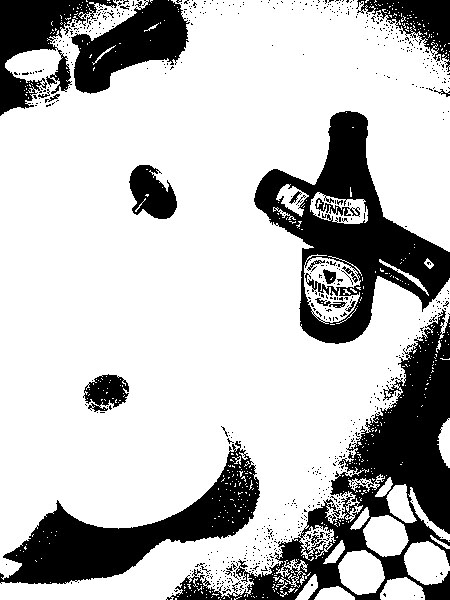
me running from yesterday’s statements – foto by Smith
My mea culpa.
I mis-spoke in yesterday’s blog, got cavalier and smudged my point when I said 1% of creative output is special and the other 99% throw-away. An unfortunate choice of words.
My words were short-speak referencing a theory I’d read which said over the thousands of years of human history, basically 1% of the creative output of each year is saved and passed on, so you get this slowly expanding impressive pile of culture that contains Beowulf, Shakespeare, Camus, Faulkner, Bach, Bob Dylan (but not Britney Spears or Mariah Carey), and every new year 1% of its plays, movies, songs, books, poems, paintings, etc are added to this continuously accumulating cultural accretion. The other 99% of each year’s cultural output is essentially forgotten over time, even though it affects the next year’s.
I sort of agree with this. But I mis-characterized the 99% – it’s not throw-away; rather each year’s output is more along the lines of 1% genius, 9% real good, 20% good, 30% so-so, 20% so, and 20% in need of vitamins.
And with poetry I average this over my spectrum. On my one hand, we have a large roster of amazing reading and writing poets in Cleveland. In fact as Lady and I read our poetry in London, Krakow, and Oaxaca from 2006 through 2008, we decided Cleveland had the liveliest, edgiest and most dynamic poetry scene of them all. But on my other hand I’ve been reading massive amounts of famous and unknown poets in books past and present and I’m finding more less than more, especially when evaluated over time.
I also have to factor in how I’ve become a tougher critic after trolling through poetry scenes for 47 years and collating my own pile of impressive poetic impressions and poems along the way so I tend to end up comparing my past years’ highlights to this year’s readings.
This 10% quality level also seems to hold true within individual poets/artists careers — even with such an acknowledged master as T.S. Eliot, 90% of his output is more or less so-so while much of his 10% genius output cannot be understood without footnotes and explanations. Same thing with Wallace Stevens, e.e. cummings, William Carlos Williams — mostly 10% decent and 90% filler.
Part of me says I shouldn’t be judging in the first place, that I should just listen and learn, but there is so much poetry out there I can’t possibly hear or read or embrace it all so I have to select, and selection is evaluation is analysis is judgment. For example, I admire and appreciate the poetry of Wallace Stevens a heck of a lot more than the verse of Rod McKuen and his American Greeting Card school of poetry.
A general lack of analysis and judgment in most folk is how Sarah Palin, George W. Bush and Dick Cheney ended up in Government instead of programs for brain transplants (for the first two) or psycho wards (for Cheney).
Anyway, I tend to go to readings these days hoping to hear voices I don’t know because I already know the voices I do know — I’ve heard most my poet friends hundreds of times, hear their voices in my head when I read their words upon the page. One of my greatest pleasures is hearing first time readers and imagining how they’ll grow and blossom through the years. I’m getting to the point where I’m going to readings more to keep friends happy than to hear poetry simply because I’ve heard so much for 47 years that it frequently has the feeling of been there done that.
As for my second complaint in yesterday’s blog that there was less and less actual poetry in poetry lately and more and more confession, diary entry, mundane lies and lives, whining, wishing, vignettes, short stories and description – well while this is true, it misses the point that if it is done right, written well, each of these genres can produce genius poems as well. Ann Sexton is a good example of confessional poetry frequently working. It is all how it is done. Even in tired formula movies, excellence can arise from a fresh interpretation — like District 9 in the sci-fi genre — and although a famous artist once said “rap was short for crap” (which is mostly true), folks like Public Enemy still come up with killer content. A perfect example of this is accordion music, which I find usually to be shallow oompa oompa German band shit can fly high in genius territory for Lady and I came across three accordion players in the old square in Krakow who were playing fantastic intricate classical music pieces and raking in the dough from the tourists.
Perhaps the perfect example of this is my friend Jeff Chiplis, whose found neon sculptures I highlighted in yesterday’s blog. Neon is ubiquitous and mundane — you’ll find beer signs in every bar, endless restaurant signs, check-cashing signs, even sign signs everywhere. Chiplis has taken this particular mundane and made it new again so it sparkles and brings a lift to your heart and a smile to your face simply by taking the old apart and recombining it into new.
(I wrote this blog because Jesus Crisis aka John Burroughs called me on my 1% statement yesterday, and he was right.)

Lady’s bath – foto by Smith
Well this is informative and thoughtful.. I guess I would agree that the 1% figure might be a bit harsh… but somehow I missed the percentage and honed in on your message . And I think overall it wasn’t that far off the mark… my own opinion. And I say that about my own work as well as anyone else’s. Mostly because it is a snapshot of reality. If I were to self-judge my own poetry and lay out those pieces that I honestly and truly think are good they would probably be less than 20 % of what I’ve written.. more in the 10% range. And if I were to hone it down even more and pick only excellent ones it would be probably close to 1-5 %. And that is from MY assessment.. not taking into account someone who knows something about poetry and what they might think. And that would be based on the amount of writing I’ve done and my current level of ability.
I read a lot of blogs on MySpace for poetry… (also read noted poets too) people around my level of ability or above and a lot is the same… On occasion a brilliant piece surfaces but the rest is good but average poetry. And as you said it takes a lot to stand out in a crowd.
But still I enjoy reading and explore what is out there. Even though a whole poem doesn’t shine often parts of it does. And reading others work or hearing them at an open mic exposes me to ideas and ways of expressing something in a way I might not of thought of. So I enjoy the variety it exposes me to. Something I might not get otherwise. So I think there are pluses and minuses to it.
I can imagine after 47 years you might well have” heard it all”.. but on occasion you hear something that surprises you. I don’t think you were all that harsh honestly… from were you are standing I can imagine it takes a lot to get your attention and that should be expected.
I like when people shake me up and what’s what… I don’t like being complacent.
You make lotsa excellent points – and I can kinda agree with the 1% theory the way you describe it here (I’d like to read more about it – will do some research). Speaking of percentages… I’ve got 99 and 44/100ths percent pure love for your blog. 😉